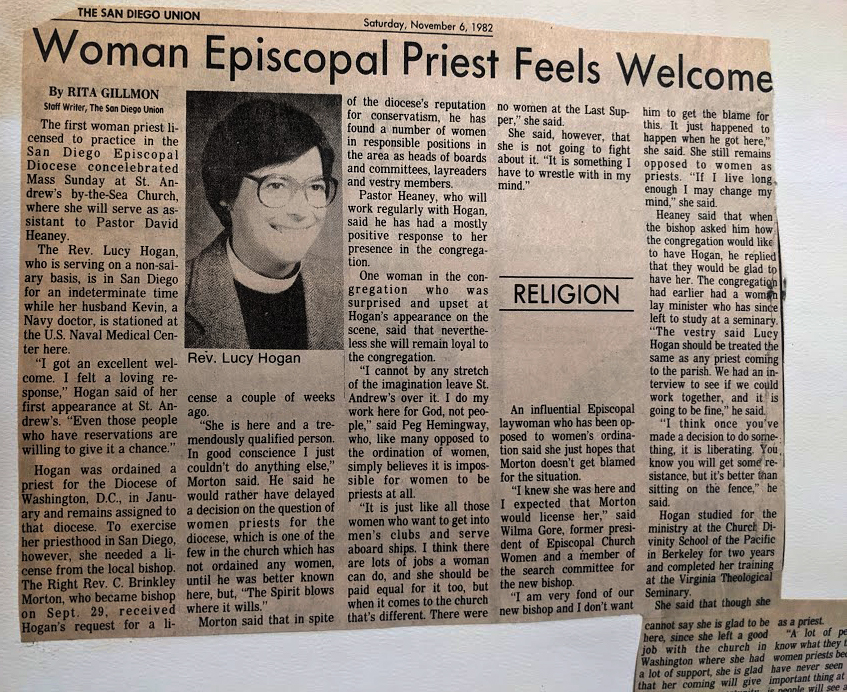Our History: Celebrating Women in Ordained Ministry
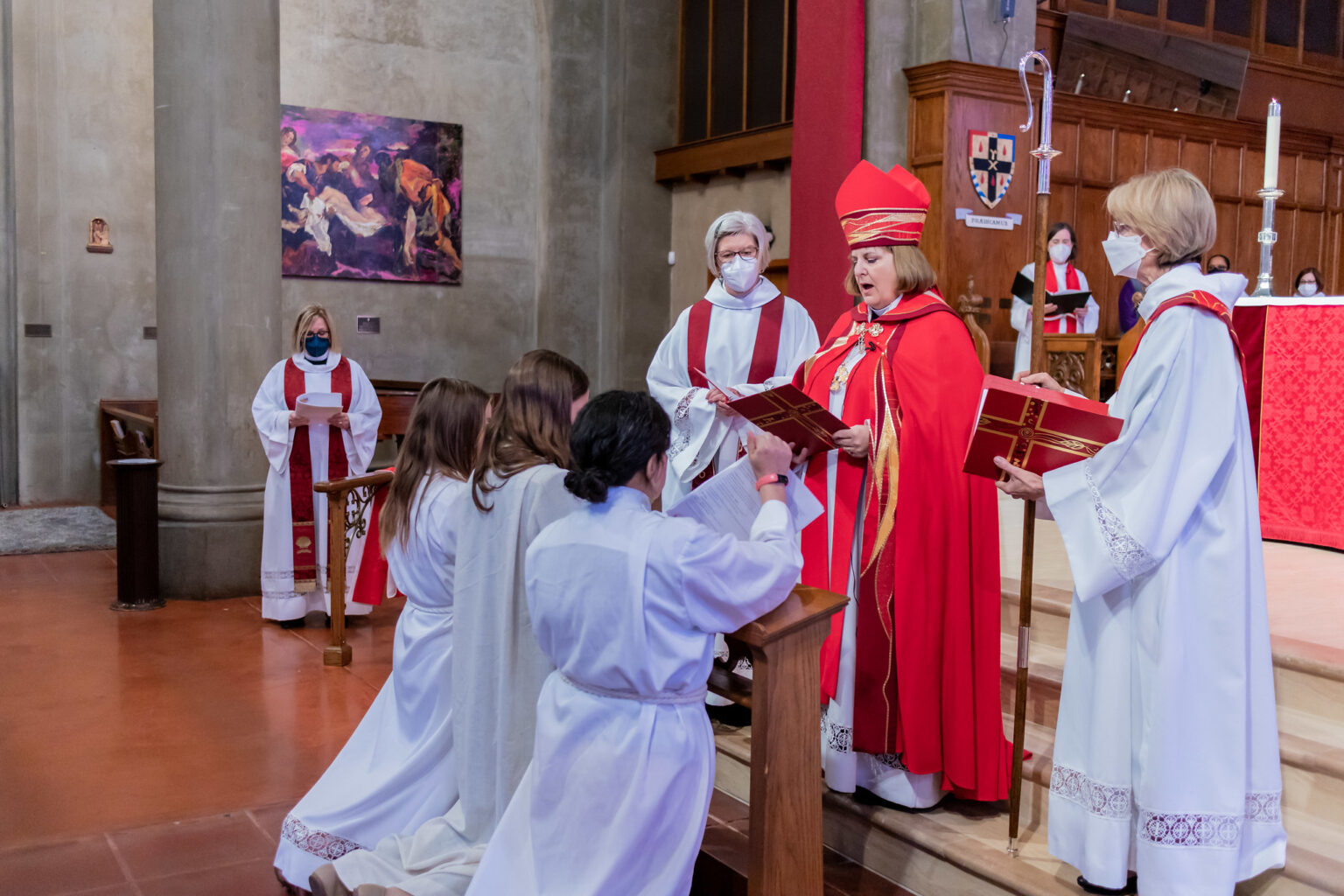
There’s a picture floating around our diocese from last February’s ordination: Bishop Susan is standing in front of ordinands Heather Lawrence, Christina Miller, and Dawn Stary. The Rev. Canon Gwynn Lynch, Canon to the Ordinary, and the Ven. Cindy Campos, Archdeacon of the Diocese, stand beside the bishop. The Dean of St. Paul’s Cathedral, The Rev. Penny Bridges, and The Rev. Canon Allisyn Thomas can be seen in the background.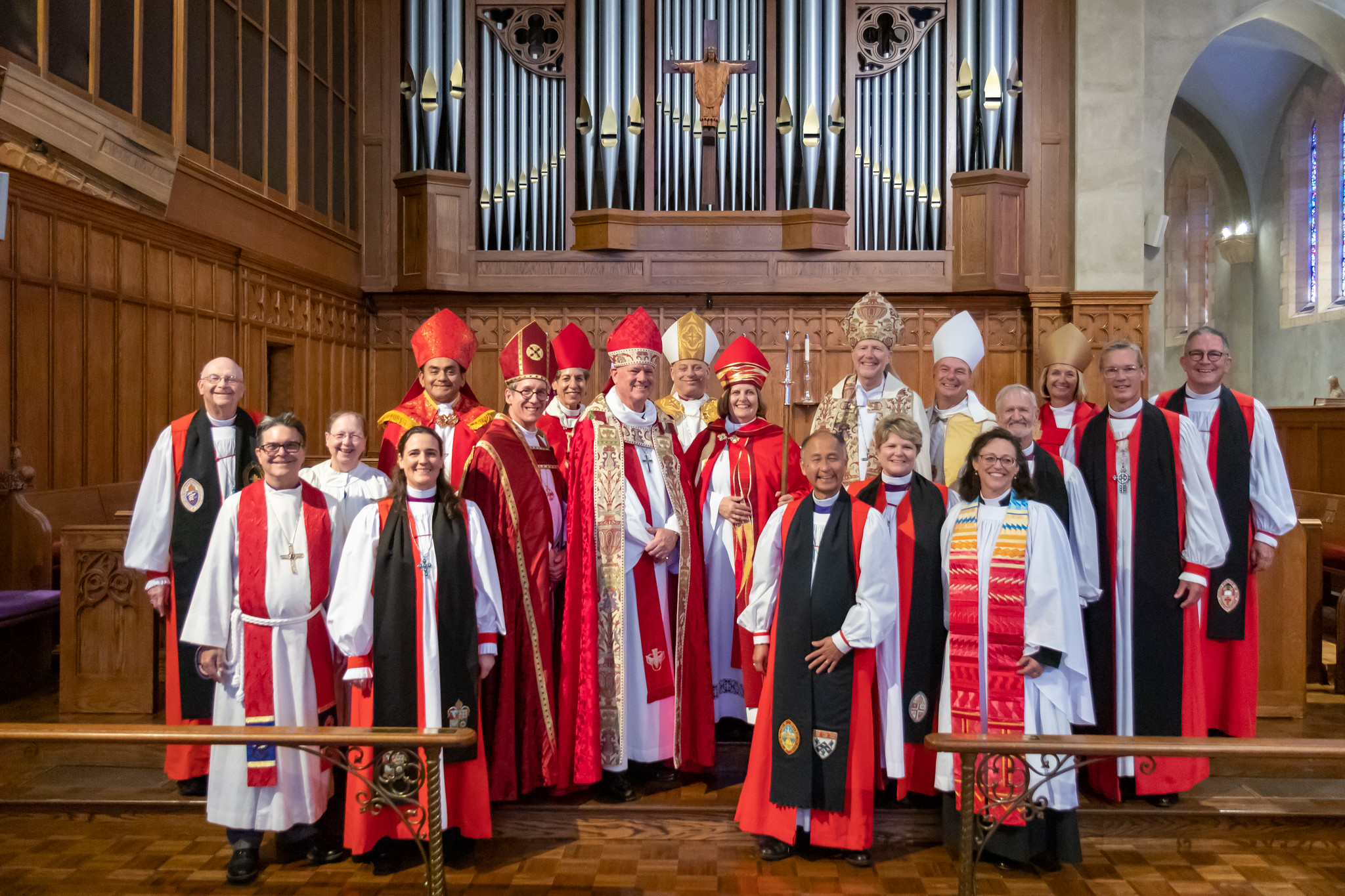
Seeing an image so filled with women at different points of their vocational journey – women who represent the highest levels of authority in our diocese with women beginning their own clerical journey – and also knowing the abundant representation that women have held in our diocese in recent history– it can be easy to forget that this episcopate is the first chapter in our diocesan history that this picture is possible.
To recap our history as a diocese and as the broader Episcopal Church:
- In 1976, General Convention officially approved the ordination of women into the priesthood and the episcopate. The first women to be ordained in the Episcopal Church happened two years earlier, with the Philadelphia Eleven.
- In 1982, The Rev. Patricia Backman of St. David’s Episcopal Church was the first woman to be ordained in the Diocese of San Diego and as a vocational deacon.
- In 1984, The Rev. Patricia Bush of St. Matthew’s Episcopal Church was the first woman to be ordained as a priest in our diocese. (The Rev. Lucy Hogan was the first woman priest to be licensed to serve in our diocese, and was ordained elsewhere.)
- In 2019, The Rt. Rev. Dr. Susan Brown Snook was consecrated as the first woman Diocesan Bishop in the Episcopal Diocese of San Diego.
All of these “firsts” serve as benchmarks of change towards a more abundant, diverse definition of who belongs in the Episcopal Church, who we as a collective institution believe is fit to lead us, and who we are ready to follow and learn from.
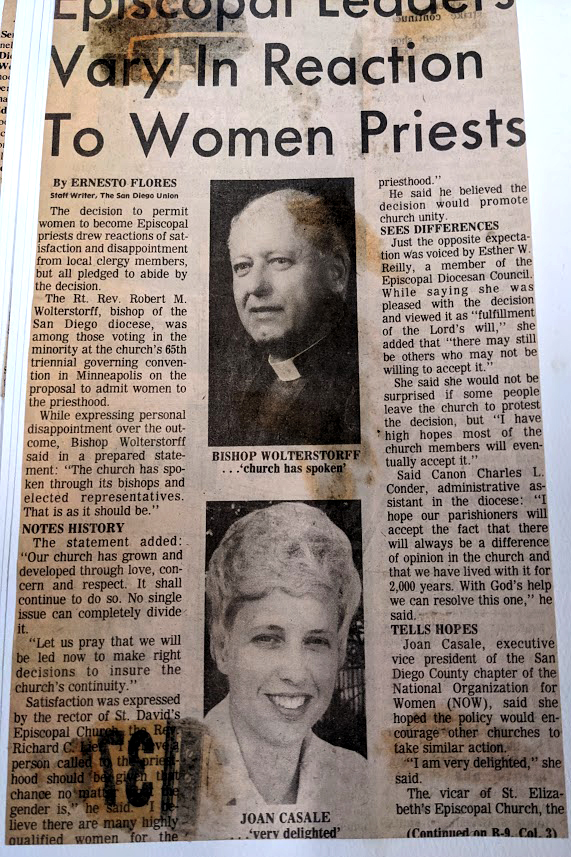 This is a change that did not come gently to the Episcopal Church. Proponents of the canonical change to include the possibility of women in ordained ministry were dismissed by some as being divisive and stirring up discord.
This is a change that did not come gently to the Episcopal Church. Proponents of the canonical change to include the possibility of women in ordained ministry were dismissed by some as being divisive and stirring up discord.
A great percentage of congregations left the Episcopal Church over the decision for the ordination of women (combined with disagreements over revisions to the Book of Common Prayer). Coalitions existed to advocate against the ordination of women. One of these coalitions wrote and published in a local religious newspaper a letter of protest regarding the ordination of Rev. Bush in 1984.
An article in the Union Tribune written by Rita Gillmon in 1984 indicates that some even anticipated protestors being onsite at Rev. Bush’s ordination ceremony held at St. Andrew the Apostle. In the same article, the Rt. Rev. C. Brinkley Morton, bishop of the diocese at the time of Rev. Bush’s ordination, was quoted to say, “he hoped ‘there will be charity and understanding for those who differ on the question of women priests” – a reminder that as followers of Christ, we all seek to commune with each other at the same proverbial table.
The Rev. Richard Lief, then rector of St. David’s Episcopal Church, is reported saying, “I believe a person called to the priesthood should be given that chance no matter what their gender is. I believe there are many highly qualified women for the priesthood.”
Now, the Episcopal Diocese of San Diego is used to women in leadership. The Rt. Rev. Katharine Jefforts Schori, who served as the first female Presiding Bishop in the Episcopal Church, stepped in to aid our diocese as an assisting bishop until the election and consecration of a new bishop, our first female Bishop Diocesan, The Rt. Rev. Dr. Susan Brown Snook.
We love a good hero story, and certainly, these women have earned the recognition – being The First of anything comes with its own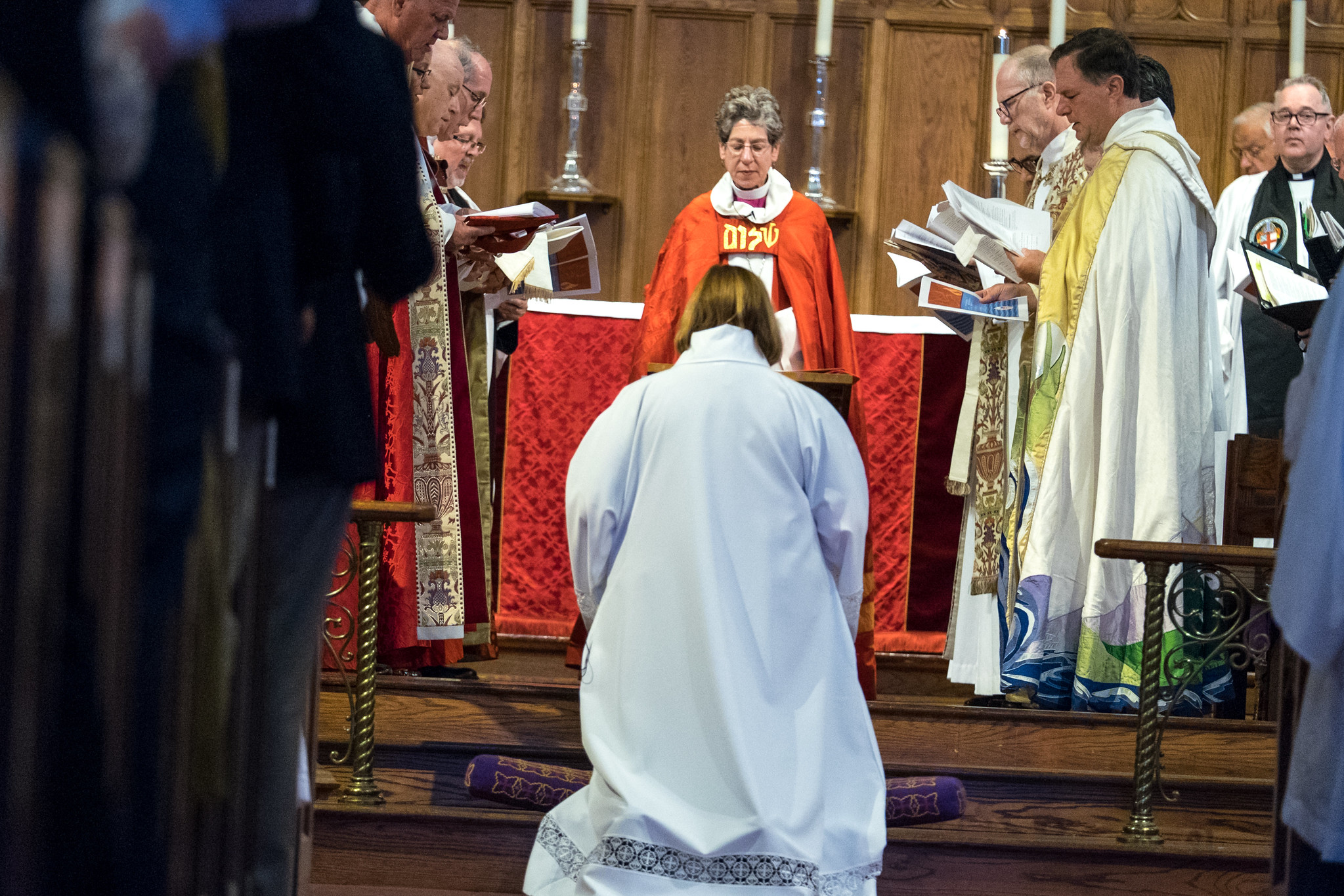 pressure and level of scrutiny. But for every Patricia, Patricia, and Susan, there are thousands of women in the history of our diocese who have helped shape our identities as individuals, as congregations, and as a whole.
pressure and level of scrutiny. But for every Patricia, Patricia, and Susan, there are thousands of women in the history of our diocese who have helped shape our identities as individuals, as congregations, and as a whole.
Who are the women who have ministered to our children; who are the women who have ministered to our adults who may sometimes act like children? Who are the women who have nourished us with literal food, and the women who have fed us with spiritual food? Who are the women who have formed us for ministry through their various temperaments, talents, and contexts?
From women who wear clerical shirts and collars to women whose ministry is best served in a t-shirt and jeans, who are the women in our own history who have led us to a deeper understanding of the wonderfully vast and varied nature of God?
Take some time this week to celebrate the women who have been a part of our formation and give thanks not just for the things they have accomplished but also for embodying the fullness of everything God has created them to be.
With deep gratitude to John Will, EDSD Archivist and Historiographer, and to all who painstakingly preserve documents in our history.
